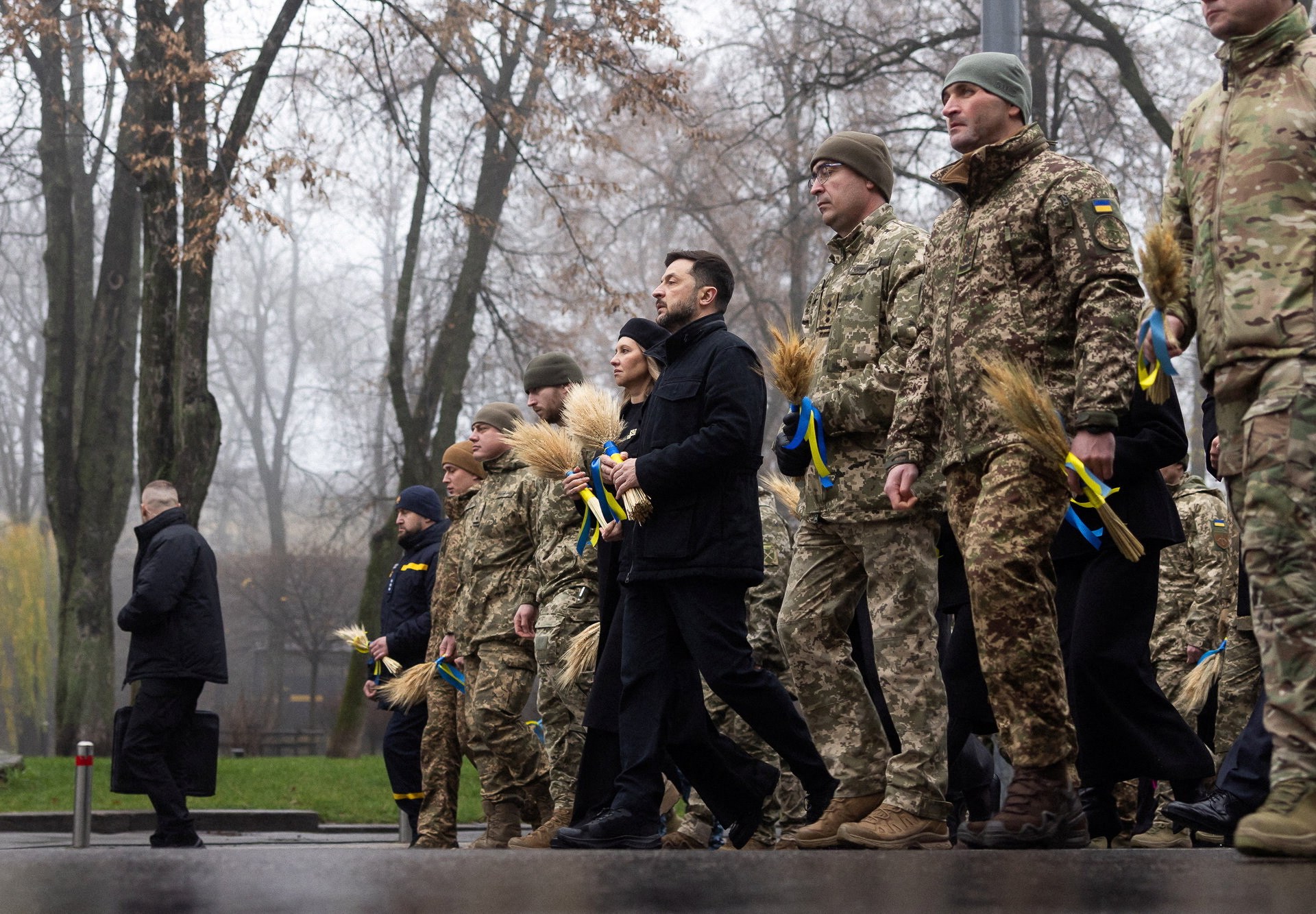As the Russia-Ukraine conflict entered its 1,368th day, diplomatic efforts and fierce combat continued to define the landscape. Ukrainian President Volodymyr Zelenskyy, alongside First Lady Olena Zelenska, marked a solemn moment by visiting a monument in Kyiv to commemorate the victims of the Holodomor famine of 1932-33, underscoring the nation's enduring struggle for survival and sovereignty.
High-Stakes Peace Talks in Geneva
A critical round of talks is underway in Geneva, where officials from Ukraine, the United States, and the European Union are convening to scrutinize US President Donald Trump's comprehensive 28-point proposal aimed at resolving the protracted war. Despite an earlier demand for Ukraine to accept his plan swiftly, Trump clarified on Saturday that the proposal was an initial offering, stating, "We’d like to get to peace. One way or another, we’ll get it ended."
Ukrainian President Volodymyr Zelenskyy confirmed on Saturday that he had formally approved the composition of Kyiv's delegation for these crucial discussions. In a social media post, he asserted, "Our representatives know how to defend Ukraine’s national interests and exactly what must be done to prevent Russia from launching a third invasion," adding a strong caveat that Russia's "crimes" should not be rewarded with territorial gains.
International Reactions and Concerns
The proposed peace plan garnered a cautious reception from European and Western leaders, who, in a joint statement, acknowledged the draft but stressed the need for "additional work." Significant pushback emerged against certain tenets of the plan, particularly those suggesting the ceding of Ukrainian territory to Russia and imposing limitations on the size of the Ukrainian military. Leaders firmly reiterated the principle: "borders must not be changed by force."
German Chancellor Friedrich Merz emphasized Ukraine's indispensable role in any peace resolution, highlighting its right to self-determination. "Wars cannot be ended by major powers over the heads of the countries affected," Merz stated. Concurrently, leaders from eight Nordic-Baltic nations issued a separate declaration, reaffirming their unwavering commitment to Ukraine, including continued military support, asserting, "We have, from the outset of Russia’s war of aggression, stood by Ukraine’s side, and we will continue to do so." Domestically in the US, Trump's plan continued to face bipartisan opposition in Congress, with Senator Angus King labeling it a significant "geopolitical mistake."
Intensified Fighting on the Front Lines
Meanwhile, the brutal conflict on the ground showed no signs of abating. Russian forces unleashed over 60 strikes on Ukraine’s Nikopol district in the Dnipropetrovsk region, resulting in at least one fatality and five injuries. Another Russian attack on a store in Zaporizhia wounded five, while shelling in Kherson claimed three lives, including two women.
In the western city of Ternopil, the State Emergency Service of Ukraine concluded its search and rescue operations following a devastating Russian missile attack on November 19. The final grim tally confirmed 33 fatalities, tragically including six children, with 94 others sustaining injuries.
Russia’s Ministry of Defence claimed success in capturing two villages in eastern Ukraine: Zvanivka in Donetsk and Nove Zaporizhzhia in the Zaporizhia region. This assertion coincided with reports from Ukraine’s Kyiv Independent, citing the Finnish Black Bird Group, indicating that Russian forces may have seized more than 15 villages in Zaporizhia. The prolonged and fierce battle for Pokrovsk in Donetsk also persisted, with Russia’s TASS news agency reporting the "encirclement of Ukrainian units" in parts of the town. However, the Ukrainian military countered these claims, stating that Russian attempts to penetrate the town's center were repelled and that Ukrainian forces maintained their defensive lines in northern Pokrovsk.

